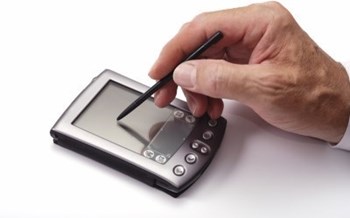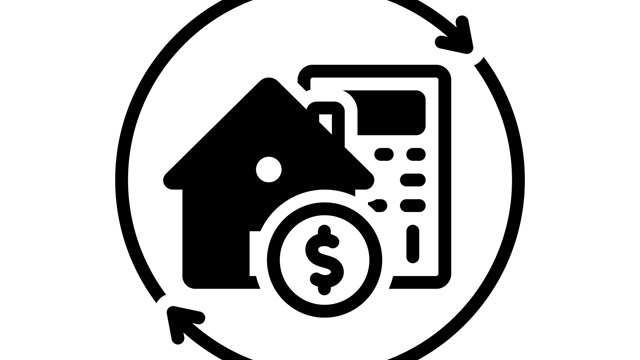
In today's world, it's assumed that business can maintain contact internally or with their customers 24/7—whether via cell phones, the Internet or e-mail. This holds doubly true for the residential management industry.
Technology has made it possible for various companies to offer their services to the buildings in their portfolio on a round-the-clock basis—and residents have come to expect maximum accessibility from their managing agents. While this accessibility has many benefits for both parties, is it realistic to expect an instant response to a question, problem or phone call at any hour of the day or night? What technologies exist to help building managers handle their portfolios more efficiently? And how do managers handle the need to be available more than ever before?
Technology Then…
As the saying goes, he who finishes with the most toys wins. Of all the "toys" available to real estate managing agents, perhaps none has had the impact of the handheld telecommunications device. BlackBerrys, Treos, iPhones, and a whole array of other phone/e-mail/Internet gadgets are now ubiquitous in the management industry—it's a far cry from the days of the fax machines, landlines and pagers, which once dominated the industry.
"Prior to cell phones we had pagers or answering services," says Jeffrey Miller of Capital Realty Group, a management and brokerage firm that specializes in historic Beacon Hill and Back Bay. "Now, in the event of a property management emergency, we have a voicemail system that calls our cell phones so our response time is under 10 minutes now. In the past it was anywhere from a half-hour to an hour. Some companies had answering services, and we had to call the answering service and tell them were we would be if we were not in the office. If I was at the movies, I'd call the answering service at intermission and see if there were any calls."
…And Now
"Our company is less than four years old," says Steve Lewis, a principal at Harvest Properties, LLC in Melrose. "One of the reasons that we got in to the business is that the use of technology—or lack thereof—was appalling, and still is in many cases. E-mailing and use of a BlackBerry was almost unheard of. In addition, the use of a website to effectively transmit information was non-existent, and that is something that we have provided for all of our clients from the beginning."
Not everyone has embraced new technology, however, says Lewis. He observes that the property management industry in New England is dominated by small 'mom-and-pop' shops that are, for the most part, low-tech.
"This is in part driven by the number of smaller properties in the region that require management and are less profitable compared to the huge associations that are found in other parts of the country," he says.
That said, even the smaller management companies looking out for Boston's buildings are by and large getting onboard the technology train. Each new generation of technological gadgets is less cumbersome than the one before it, and they're getting more and more user-friendly. Devices are now portable and wireless, freeing agents from their offices, where they were once tethered by corded fax machines and rotary phones. Even digital pagers—once the gadget of choice for managers—have been largely phased out.
"Pagers helped a lot in the past, but now I don't have to walk around with pager and cell phone," says Miller. "Now I just have a cell phone, but it's never unplugged—it's on or charging all the time."
"E-mail and BlackBerrys have certainly made managers more accessible," agrees Lewis. "The industry is almost entirely about effective communication and keeping the client informed."
"Even today there are few gadgets that are indispensable," Lewis continues. "Some managers still are very low-tech, but good management companies have begun using websites, BlackBerrys, and so on. The use of property-management-specific software, banks, and insurance agents has lead to time savings for managers and better service to the clients," says Lewis.
"The Internet has also helped," says Miller. "For instance, we don't have to post notices on doors anymore; we send an e-mail to everybody saying that water is going to be shut off, or something like that."
As the use of e-mail has rapidly increased, Miller notes that more tenants, owners and shareholders are using it as their communication method of choice.
"It does present a problem when people don't read their e-mails or have trouble with it, though," says Miller. "Right now I'm getting more e-mails than phone messages. When people call and get a busy signal, they e-mail. We did have one person who was outraged that I didn't respond to an e-mail on Saturday afternoon, but from her point of view, she's right out of college and all her friends communicate via handheld devices."
Benefits of Being Connected 24/7
In addition to a quicker response time, one of the biggest advantages of modern technology is that residents and unit owners are also often reachable 24/7. This is especially helpful in any kind of urgent situation for which the unit occupant is not home.
"Most tenants or condo owners have cell phones, and they carry them with them," says Miller. "We had a homeowner call us about a leak in the unit above hers, and I was able to contact owner on her cell. She was not at home, but got a family member to come over and turn off her dishwasher."
In addition to quicker response times in many cases, increased connectivity has also improved security and streamlined the way management companies can monitor the facilities they oversee.
"We have cameras at some of the properties so we can see who is entering and exiting," says Miller. "Also, we can be notified when a boiler shuts off in the wintertime and when or if a fire alarm is going off."
Knowing the minute a problem arises means it is handled more quickly today than if mangers were still relying on dated technology. And in many cases, management companies can save buildings money if they can handle a problem themselves as it arises, instead of hiring someone to deal with it after the fact.
"If a boiler shuts off when the temperature goes below a certain degree, I'm notified," says Miller. "And if it's a property that's close by, I can check it myself. It's a lot cheaper if I go take a look at it rather than calling an oil technician or a heating company in the middle of the night. Sometimes it's something as simple as someone hitting the boiler switch in the hallway instead of a light switch."
…And the Drawbacks
"Most of the work that managers do is behind-the-scenes and is often not understood or appreciated by owners that are non-board members," says Lewis. "This is an issue, because the perceived value of the service is low; however managers are expected to have knowledge and skills in a broad range of areas, such as insurance, building construction, financial management and public speaking. The market's perception of the value of the service leads to low fees and makes it difficult for property management companies to pay adequate salaries to the individuals who manage the properties. This often leads to bad service and a soured relationship with customers—and ultimately a bad rap for the industry."
While being able to respond instantly to a crisis or question definitely helps increase the perceived value of property management services, being constantly on-call can lead to a stressful work environment for the managing agents themselves. A typical day might be nothing but typical—including long, unpredictable hours, unforeseen emergencies and a great deal of travel. Most managers are unlikely to be chained to a desk all day.
"Technology has made mangers more accessible, which is great for the client—but not necessarily great for the manager," says Lewis. "The industry has a high level of burnout. This is in part due to being on call 24/7 and also having to attend countless night meetings with owners. It is important to have good processes in place so managers can get a break. Most interactions in the industry with clients are negative—for example, there is a problem to solve. This can be very draining. Technology can save a lot of time during emergencies, and having contact info for owners and vendors at your fingertips is necessary."
"When you're in a service business, technology is very helpful," adds Miller, "but it does cut into family time. It's unfortunate, but my family has accepted it. I've been called while I was on the beach at the Cape, or at my daughter's bat mitzvah, for example."
New innovations in technology have led to an expectation of instant gratification on the part of many condo owners. This is often a problem for managers, who might need time to address a problem, or who simply cannot respond immediately to a situation. And yes, sometimes technology is not perfect. E-mails can disappear into cyberspace and a manager might not even be aware that a resident is anxiously awaiting a response. This is one reason it's recommended to make a phone call in addition to sending an e-mail—especially in an emergency situation.
"When you don't receive an e-mail that someone sent to you, it can be a problem. It doesn't happen too often, but it does happen," says Miller.
"Most of the time, client calls, e-mails, and so forth are not emergencies," says Lewis. "But with the increased use of e-mail and PDAs, the expected response time has become unrealistic. It is important for managers to slow down and use effective time-management strategies to prioritize work and establish realistic expectations with their clients."
As technology continues to evolve, new innovations will make today's tools look antiquated and clunky by comparison. And as more management features become automated, and more managers become tech-savvy, building trustees will continue to expect instantaneous service, 24 hours a day. Although technology allows us to be connected constantly, it is not perfect and likely never will be. Management companies can use it to enhance and expedite their services, but glitches and the inability to respond immediately will still exist. In taking advantage of new technology—now and in the future—trustees must work with their building management to formulate an effective set of solutions for handling problems and communicating in general, whether it's wireless, or done the old-fashioned way, face-to-face.
Stephanie Mannino is a freelance writer and published author living in Hoboken, New Jersey.






Leave a Comment